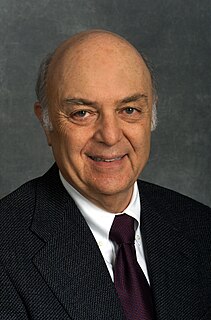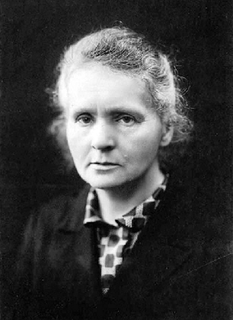See also
| Wikimedia Commons has media related to Materials physics . |
| Divisions | |
|---|---|
| Approaches | |
| Classical | |
| Modern | |
| Interdisciplinary | |
| Related | |
| | This condensed matter physics-related article is a stub. You can help Wikipedia by expanding it. |
Materials physics is the use of physics to describe the physical properties of materials. It is a synthesis of physical sciences such as chemistry, solid mechanics, solid state physics, and materials science. Materials physics is considered a subset of condensed matter physics and applies fundamental condensed matter concepts to complex multiphase media, including materials of technological interest.
Current fields that materials physicists work in include electronic, optical, and magnetic materials, novel materials and structures, quantum phenomena in materials, nonequilibrium physics, and soft condensed matter physics. New experimental and computational tools are constantly improving how materials systems are modeled and studied and are also fields when materials physicists work in.
| Wikimedia Commons has media related to Materials physics . |

Condensed matter physics is the field of physics that deals with the macroscopic and microscopic physical properties of matter, especially the solid and liquid phases which arise from electromagnetic forces between atoms. More generally, the subject deals with "condensed" phases of matter: systems of many constituents with strong interactions between them. More exotic condensed phases include the superconducting phase exhibited by certain materials at low temperature, the ferromagnetic and antiferromagnetic phases of spins on crystal lattices of atoms, and the Bose–Einstein condensate found in ultracold atomic systems. Condensed matter physicists seek to understand the behavior of these phases by experiments to measure various material properties, and by applying the physical laws of quantum mechanics, electromagnetism, statistical mechanics, and other theories to develop mathematical models.

Physics is the natural science that studies matter, its fundamental constituents, its motion and behavior through space and time, and the related entities of energy and force. Physics is one of the most fundamental scientific disciplines, with its main goal being to understand how the universe behaves.
The following outline is provided as an overview of and topical guide to physics:
Solid-state physics is the study of rigid matter, or solids, through methods such as quantum mechanics, crystallography, electromagnetism, and metallurgy. It is the largest branch of condensed matter physics. Solid-state physics studies how the large-scale properties of solid materials result from their atomic-scale properties. Thus, solid-state physics forms a theoretical basis of materials science. It also has direct applications, for example in the technology of transistors and semiconductors.

Alexei Alexeyevich Abrikosov was a Soviet, Russian and American theoretical physicist whose main contributions are in the field of condensed matter physics. He was the co-recipient of the 2003 Nobel Prize in Physics, with Vitaly Ginzburg and Anthony James Leggett, for theories about how matter can behave at extremely low temperatures.
Physical Review Letters (PRL), established in 1958, is a peer-reviewed, scientific journal that is published 52 times per year by the American Physical Society. As also confirmed by various measurement standards, which include the Journal Citation Reports impact factor and the journal h-index proposed by Google Scholar, many physicists and other scientists consider Physical Review Letters to be one of the most prestigious journals in the field of physics.
Chemical physics is a subdiscipline of chemistry and physics that investigates physicochemical phenomena using techniques from atomic and molecular physics and condensed matter physics; it is the branch of physics that studies chemical processes from the point of view of physics. While at the interface of physics and chemistry, chemical physics is distinct from physical chemistry in that it focuses more on the characteristic elements and theories of physics. Meanwhile, physical chemistry studies the physical nature of chemistry. Nonetheless, the distinction between the two fields is vague, and scientists often practice in both fields during the course of their research.

Leo Philip Kadanoff was an American physicist. He was a professor of physics at the University of Chicago and a former President of the American Physical Society (APS). He contributed to the fields of statistical physics, chaos theory, and theoretical condensed matter physics.
Abdullah Sadiq, is a Pakistani physicist and ICTP laureate who received the ICTP Prize in the honour of Nikolay Bogolyubov, in the fields of Mathematics and Solid State Physics in 1987 for his contributions to scientific knowledge in the field of Mathematics and Statistical physics. He is the professor of physics and current Dean of the Department of Physics of the Air University of the Pakistan Air Force (PAF).

Marvin Lou Cohen is an American theoretical physicist. He is a University Professor of Physics at the University of California, Berkeley. Cohen is a leading expert in the field of Condensed Matter Physics. He is highly cited and most widely known for his seminal work on the electronic structure of solids.
Kurt Binder is an Austrian theoretical physicist. He received his Ph.D. in 1969 at the Technical University of Vienna, and his habilitation degree 1973 at the Technical University of Munich. He decided to accept a professorship post for Theoretical Physics at the Saarland University, having an offer from the Freie University in Berlin as well at the same time. From 1977 to 1983, he headed a group for Theoretical Physics in the Institute for Solid State Research at the Forschungszentrum Jülich, prior to taking his present post as a University Professor for Theoretical Physics at the University of Mainz, Germany. Since 1989 he is also an external member of the Max-Planck-Institute for Polymer Physics in Mainz.
Prof. Shri Krishna Joshi was an Indian physicist. He was born on 6 June 1935 in the village of Anarpa in Kumaun, Uttarakhand, India.

Giuseppe Franco Bassani was an Italian physicist.

Chemistry and physics are branches of science that both study matter. The difference between the two lies in their scope and approach. Chemists and physicists are trained differently, and they have different professional roles, even when working in a team. The division between chemistry and physics becomes diffuse at the interface of the two branches, notably in fields such as physical chemistry, chemical physics, quantum mechanics, nuclear physics/chemistry, materials science, spectroscopy, solid state physics, solid-state chemistry, crystallography, and nanotechnology.
James Arthur Krumhansl was an American physicist who specialized in condensed matter physics and materials science. He spent much of his career at Cornell University. He also served as president of the American Physical Society and assistant director for mathematics, physical sciences, and engineering for the National Science Foundation. In 1987 he testified before Congress that the Superconducting Super Collider would be too costly.
Elihu Abrahams was a theoretical physicist, specializing in condensed matter physics.

Deepak Kumar was an Indian condensed matter physicist and a professor at the School of Physical Sciences of Jawaharlal Nehru University. Known for his research on quantum mechanics and other areas of condensed matter physics, Kumar was an elected fellow of the Indian Academy of Sciences. The Council of Scientific and Industrial Research, the apex agency of the Government of India for scientific research, awarded him the Shanti Swarup Bhatnagar Prize for Science and Technology, one of the highest Indian science awards, for his contributions to physical sciences in 1988.
Silke Bühler-Paschen is an Austrian solid-state physicist and has been professor for engineering physics at TU Wien, Austria since 2005.

Ora Entin-Wohlman is an Israeli condensed matter physicist. She is a professor emeritus at Tel Aviv University and at Ben-Gurion University of the Negev.